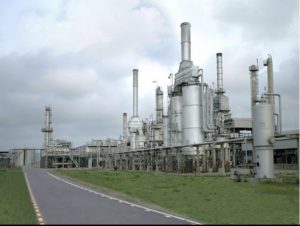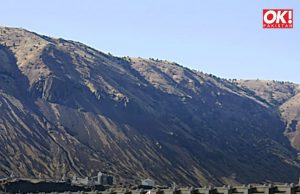Riyadh extends a $10 billion refinery project.
Previous agreements were hampered by political opposition and financial viability.

A multibillion-dollar agreement between Pakistan and the Kingdom of Saudi Arabia is edging closer to being signed for an oil refinery project that has been on hold for several years. Before Prime Minister Shehbaz Sharif’s trip to Riyadh, teams from Pakistan and Saudi Arabia have been holding a series of meetings to finalise a business agreement on the project.
During a visit to Pakistan in January 2019, Saudi Arabia’s Energy Minister Khalid Al-Falih made the announcement and stated that the Arab country intended to build a $10 billion oil refinery in the country’s deep-water port of Gwadar. Due to concerns about the plan’s financial sustainability, nevertheless, it was abandoned. During the visit of Saudi Crown Prince Mohammad bin Salman to Pakistan in February 2019, a $20 billion investment package was unveiled. This package included $10 billion in funding for the construction of the massive oil refinery in Gwadar.
A $3.2 billion bailout fund was later repaid due to disagreements with the Pakistan Tehreeki-Insaaf (PTI) administration. The nation also chose to scrap the massive oil refinery project as a result of this development. According to sources, the lack of a pipeline that might help carry oil from the refinery to different parts of Pakistan, which would require an additional investment of about $2 billion, was another factor in the agreement falling through. After the coalition took office, Sharif made plans to hasten the construction of the energy projects Saudi Arabia had envisioned for Pakistan.
The Petroleum Division sped up work on the new refinery policy, another project that had been on hold for a time, in response to the Arab country’s willingness to grant incentives for new refinery projects. According to officials, Shahid Khaqan Abbasi, a former minister of petroleum and the current chairman of the Energy Task Force, is leading the Pakistani delegation in talks with the government of Arabia. One of the incentives required by Saudi Arabia was a 7.5% deemed duty on gasoline and high-speed diesel for the following 25 years.
High-speed diesel is currently subject to a deemed duty of 7.5 percent. While rejecting this proposal, the Pakistani side did provide a 10% deemed duty on gasoline and high-speed diesel over the following ten years in exchange for the construction of a new oil refinery in Pakistan. According to sources, both parties anticipated completing the incentives that would be included in the new refinery policy before sending it to the Economic Coordination Committee (ECC) and the cabinet for approval.
The Pak Arab Refinery Limited (Parco), a joint venture between Pakistan and the government of the United Arab Emirates (UAE), is the second proposal on the table. It aims to establish the new Khalifa Refinery Project, a refinery with a capacity of 400,000 barrels per day. The UAE government made the decision to build the Khalifa Refinery in Balochistan’s coastline region with a $6 billion investment. The UAE government postponed the project after a dispute with the Pakistan People’s Party (PPP) over the choice of a new managing director at Parco. The $6 billion Khalifa Coastal Refinery project, however, was approved to be renewed by the UAE government in 2016.
The UAE government, Parco, and OMV are partners in this initiative. OMV owns 10% of all the shares. According to this strategy, OMV and the UAE’s government might abandon the project, making room for Saudi Arabia to replace them. Additionally, PSO and Parco may join forces on the project as partners. In light of this, Saudi Arabia may participate in this project rather than build a separate refinery in the oil city of Gwadar. Officials say Pakistan needs a refinery with a capacity of 400,000 barrels even though Parco, the largest oil refinery in the country, only has a daily capacity of 100,000 barrels.
Currently, Saudi Arabian crude oil shipments are necessary to fulfill Parco’s demand. According to industry officials, if the current refinery’s capacity is increased to 400,000 barrels and a third refinery is built with the same capacity, the country’s fuel needs will be satisfied through the year 2040.




















































